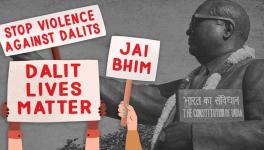Detention Centres: A Balancing Act in Assam
In a major breakthrough regarding the conditions of the detention centres in Assam, the Supreme Court on May 10 ordered the release of detenues who have spent more than three years in lock-up. This was done on the basis of an assurance to the court from the Solicitor General, Tushar Mehta, that the matter of undocumented immigrants would be handled at the diplomatic level.
Though this order can potentially provide relief to many who are holed up in the detention centres, the court has laid down certain conditions that ought to be met by the released detenues. However, what will most probably be the biggest stumbling block is the requirement of depositing Rs. 2 lakh as surety from two Indian citizens on the detenues’ behalf.
The other conditions that need to be fulfilled for their release is that their photographs and, if possible, biometric profiles will be recorded and kept. The released detenus are also required to provide a verifiable address for communication and to once-a-week report to a police station identified by the Foreigners Tribunal. Thereafter, any change in address must be reported the day of the change.
The present order is a modified version of the proposal submitted on behalf of the government of Assam by the Chief Secretary, Alok Kumar, which said those who have been detained for 10 years would be eligible for release.
Also Read | Supreme Court Seeks Information on Assam Detention Centres
However, this breakthrough has a strange irony to it, as on April 25, the Hindustan Times quoted the Chief Justice of India (CJI) Ranjan Gogoi -- who is hearing the matter along with Justice Sanjiv Khanna -- as having been dismissive of the thought of releasing the detenus.
The CJI was quoted as having said: “You want to allow a man who is deemed to be a foreigner to stay after he executes a bond. You want the Supreme Court to be a party to an illegal order?” As well as; “Give us a figure of people, who have intermingled with the local populace. There are 900 foreigners in detention centres and more than one lakh twelve thousand who have mingled with the locals. They are on the electoral list and they are voting. Is this how your government is functioning?”
These remarks resulted in two further developments wherein the main petitioner in the matter, Harsh Mander, filed an application on … for the CJI to recuse himself from the hearings on the basis of a perceived bias. The CJI was clearly not amused, however, he decided not to agree with the Solicitor General and initiate contempt proceedings against Mander. Instead, Mander’s name was struck from the record and the petition is being represented by the Supreme Court Legal Services Committee.
The other development was a press release from the Commonwealth Human Rights Initiative (CHRI) which condemned the CJI’s comments concerning the matter. The press statement was signed by a former colleague of the CJI, Madan B Lokur. Retired Justice Lokur was one of the four judges to hold the unprecedented press conference in January 2018. Justice Lokur was also on the bench hearing the connected petitions concerning Inhuman Conditions in 1382 Prisons, which is related to the petition filed by Mander.
Also Read | Assam: Indefinite Detention for Those Without Documents
The detention centres in Assam are an oddity that exists in a grey zone of the Indian legal system. In 1949, Rohini Kumar Choudhari raised the issue of migration from East Pakistan into Assam. What was suggested as a solution was to issue temporary permits for entry and work. However, this proposal was never seen through. Instead, the Immigrants (Expulsion from Assam) Act, 1950 was enacted.
Under this law, the Government of India could expel any person or class of persons from Assam. The Foreigners Act, 1946 was used to determine the citizenship status of any person residing in India. In 1964, the state government of Assam set up the Border Police to man the border with Bangladesh. Additionally, Foreigners Tribunals were established under the Foreigners Act in 1964 as well.
Like in most parts of the world, when a person’s citizenship is questioned, the onus is on the individual to prove whether they are a citizen or not. This was the same method of functioning adopted by the Foreigners Tribunals under the Foreigners Act, as well as the Border Police. Thus, those adjudged to be foreigners would be sentenced to detention until their deportation. However, the matter is not so simple. Following the 1971 war with Pakistan wherein East Pakistan successfully seceded with India’s help to form Bangladesh, the Governments of India and Bangladesh had an agreement. The agreement is commonly referred to as the Indira-Mujib Pact, wherein all persons who had entered India from East Pakistan would become Indian citizens, simply because East Pakistan no longer existed. Since March 25, 1971 was the beginning of the Bangladesh nationalist insurgency, until then, only East Pakistan existed.
Also Read | SC Admits Petition Seeking Directions Regarding Detention Centres in Assam
This new date would inevitably frustrate whatever the Foreigners Tribunals would have hoped to achieve as according to the Indian Citizenship Act, 1955, the date for automatic citizenship was January 26, 1950. At the fag end of the 1970s, the student-led Assam Agitation began. The All Assam Students Union (AASU) paralysed the state for six years until the Assam Accord was signed between the Government of India, AASU and the Assam Gana Sangram Parishad, which later became the political party, Assam Gana Parishad (AGP).
It was in this period that two contradictory laws appeared. In 1983, the Illegal Migrants (Determination by Tribunals) Act (IMDT Act) was passed. Under this law, the onus of proof lay upon the state, i.e. the government had to prove that the accused was not a citizen. This law not only turned the Citizenship Act on its head, but also went against the general international practice regarding citizenship.
In 1985, in pursuance of the Assam Accord, the Citizenship Act was amended to include section 6A, which would apply only to Assam. The provision laid down two cut-off dates for determining the citizenship of persons of ‘Bangladeshi’ origin, January 1, 1966 and March 25, 1971. Those who arrived prior to the former date would be automatically deemed to be citizens, whereas those who arrived before the next cut-off date would become citizens only after a period of 10 years starting from the date on which they were first detected as ‘foreigners’. The contradiction in this case was that the cut-off date was based on the Indira-Mujib Pact, the gist of which was that all persons who entered India before this date would become Indian citizens, the rest would be Bangladeshi citizens.
However, a caveat remains, India neither has a refugee nor immigration policy spelt out. Further, no agreement for deportation or repatriation exists between India and Bangladesh. Instead, the methods adopted are that the Border Security Force (BSF) will inform Bangladesh’s Border Guards of people who are declared Bangladeshi citizens, thereafter the Bangladesh police will conduct an investigation and only after the investigation is conclusive will the person be sent back home. The other method which is a blot on India’s human rights record is called a ‘push back’, where the people are literally forcefully pushed across the border.
Also Read | Sofiya Khatun, Declared a Foreigner, Set to Walk Free After SC Grants Bail
In 2005, the Supreme Court of India in Sarbananda Sonowal v. Union of India declared the IMDT Act unconstitutional. The result, of course, would mean that the functioning of the Foreigners Tribunals would once again change. With the new standards imposed, the conviction rates have shot up. However, another factor has played a role in the rise of conviction rates, ex parte hearings. The ex parte hearings implies that the party who the proceedings are against is not present at the time. Though generally it is an extraordinary practice that is adopted only after notice has been served and the party has not appeared, most of those who have been convicted in these proceedings are char dwellers. The chars are riverine islands caused by silt deposits. They are highly fertile soils for cultivation but are also susceptible to erosion, particularly during monsoon. Oftentimes the entire island disappears, resulting in the loss of homes and livelihood. Since the notice is supposed to be delivered to the person’s address, if the char disappears, where can the notice be delivered?
Assam has been struggling to come to terms with the issue of Bengali-speaking migrants. On the one hand, during the days of colonial rule and even after, many of the petty bureaucrats and other officials were of Bengali origin. On the other hand, many of those who tilled the land and particularly those who fished in the rivers were also of Bengali origin. The resentment eventually paralysed the state between 1979 and 1985 during the AASU-led agitation. In the meantime, an armed movement began under the aegis of the United Liberation Front of Assam (ULFA).
It was only in the 2000s that the violence tapered and a strained peace returned. However, uncomfortable questions remain: shouldn’t a democratically elected and representative government represent the people? Can the people of a particular region hold a state and its Constitution to ransom? Striking a balance seems to be all the Supreme Court can do in the face of the elected government’s apathy to all.
Get the latest reports & analysis with people's perspective on Protests, movements & deep analytical videos, discussions of the current affairs in your Telegram app. Subscribe to NewsClick's Telegram channel & get Real-Time updates on stories, as they get published on our website.
























